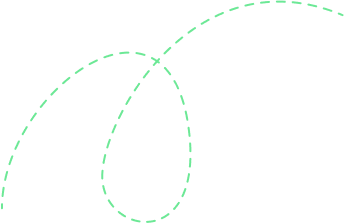Overview of Course
Anypoint Platform Architecture: Integration Solutions course is designed for integration architects and developers who want to create efficient and scalable integration solutions using Anypoint Platform. With this course, you will learn how to create complex integrations that can handle large volumes of data and multiple endpoints.
Course Highlights

In-depth coverage of Anypoint Platform Architecture and Integration Solutions

Hands-on experience with Anypoint Studio

Learn to create custom connectors
Key Differentiators
Personalized Learning with Custom Curriculum
Training curriculum to meet the unique needs of each individual
Trusted by over 100+ Fortune 500 Companies
We help organizations deliver right outcomes by training talent
Flexible Schedule & Delivery
Choose between virtual/offline with Weekend options
World Class Learning Infrastructure
Our learning platform provides leading virtual training labs & instances
Enterprise Grade Data Protection
Security & privacy are an integral part of our training ethos
Real-world Projects
We work with experts to curate real business scenarios as training projects
Skills You’ll Learn
Design and build efficient and scalable integration solutions using Anypoint Platform
Create custom connectors and APIs
Understand data transformation and API management
Deploy and manage applications on CloudHub
Debug, test and handle errors in integration solutions
Training Options



1-on-1 Training
Access to live online classes
Flexible schedule including weekends
Hands-on exercises with virtual labs
Session recordings and learning courseware included
24X7 learner support and assistance
Book a free demo before you commit!

Corporate Training
Everything in 1-on-1 Training plus
Custom Curriculum
Extended access to virtual labs
Detailed reporting of every candidate
Projects and assessments
Consulting Support
Training aligned to business outcomes
 Unlock Organizational Success through Effective Corporate Training: Enhance Employee Skills and Adaptability
Unlock Organizational Success through Effective Corporate Training: Enhance Employee Skills and Adaptability- Choose customized training to address specific business challenges and goals, which leads to better outcomes and success.
- Keep employees up-to-date with changing industry trends and advancements.
- Adapt to new technologies & processes and increase efficiency and profitability.
- Improve employee morale, job satisfaction, and retention rates.
- Reduce employee turnovers and associated costs, such as recruitment and onboarding expenses.
- Obtain long-term organizational growth and success.
Course Reviews
Curriculum
- Describe the objectives of enterprise integration solution
- Summarize how to architect for success with Anypoint Platform
- Describe how integration solutions using Anypoint Platform are documented
- Start using an architecture template for the course case study
- Identifying Anypoint Platform Components and Capabilities
- Identify and document the overall design intentions of Anypoint Platform
- Summarize Anypoint Platform capabilities and high-level components
- Identify and distinguish between Anypoint Platform infrastructure and deployment options
- Choose Anypoint Platform components to be used to meet the functional and non-functional requirements of an integration use case
- Explain the typical uses of Mule components (including connectors, transformers, routers, and error handlers) in Mule applications
- Describe the differences between Mule 4 and Mule 3 applications
- Choose appropriate Mule application components to design an integration use case
- Summarize how class loading isolation is implemented in Mule runtimes
- Distinguish between Mule 4 blocking, non-blocking, parallel, and reactive event processing options
- Identify the event processing models used in various Mule 4 scopes and components
- Describe Mule 4 streaming options and behaviors
- Describe the event processing options for JMS and VM connectors
- Select appropriate event processing for an integration use case
- Design batch, near real-time, and real-time data synchronization integration use cases
- Choosing Appropriate Message Transformation and Routing PatternsDescribe reusable ways to transform and process events
- Explain how to simplify and decouple complex data mappings using common data models
- Design transformations between data models
- Choose the best event transformation, data validation, and event routing patterns to an integration use case
- Describe possible testing strategies for Mule applications
- Document a testing strategy for an integration use case
- Define the types of MUnit tests required for an integration use case and document the code coverage
- Design integration and performance tests for Mule applications
- Distinguish between various Anypoint Platform runtime service models
- Distinguish between various Anypoint Platform deployment models
- Select the best deployment and runtime service options for an integration use case
- Designing with Appropriate State Preservation and Management Options
- Decide the best way to store Mule application state in persistent or non-persistent storage
- Explain how to store Mule application state using Object Store v2
- Decide when to manage storage of Mule application state using persistent VM queues
- Decide when to use Mule application provided caches to store Mule application state
- Design an integration solution to avoid duplicate processing of previous records using Mule connector watermarks
- Design the best storage and state management options for an integration use case
- Describe auditing and logging options for Mule applications
- Design logging strategies for Mule applications
- Choose logging policies for Mule application log files
- Describe integration options with third-party log management systems
- Specify Anypoint Platform monitoring, alerting, notification, visualization, and reporting options for APIs and integration solutions
- Choose the best monitoring, alerting, and notification options for an integration use case
- Designing an Efficient and Automated Software
- Development LifecycleDesign to manage property files for Mule applications across different environments
- Design to manage Anypoint Platform environments for Mule application deployments
- Describe how to implement continuous integration and continuous delivery (CI/CD) for an organization
- Describe how to automate deployment and management with Anypoint Platform
- Identify why and when transactions are supported in Mule applications
- Identify resources that participate in transactions in Mule applications
- Describe how to manage a transaction using a transaction manager or the Saga pattern
- Describe how to demarcate transaction boundaries in Mule applications
- Choose the correct transaction type based on the participating resources
- Identify and distinguish between reliability patterns for Mule application and their deployments
- Design to effectively balance competing non-functional requirements
- Clarify and validate reliability goals for an integration use case
- Design Mule applications and their deployments to meet reliability goals
- Design to effectively balance reliability goals with other project goals and requirements
- Identify various types of high availability (HA) goals for Mule applications
- Identify ways to achieve HA in CloudHub and on-premises deployments
- Identify HA aware connectors and their design tradeoffs
- Describe how clustering and load balancing work in CloudHub and on-premises deployments
- Design to effectively balance HA goals with other project goals and requirements
- Clarify performance goals for Mule applications
- Identify the need for performance optimization and associated tradeoffs
- Describe ways to search for and locate performance bottlenecks
- Describe how to design, architect, design, and implement for performance
- Describe ways to measure performance
- Describe methods and best practices to performance tune Mule applications and Mule runtimes
- Design to effectively balance performance goals with reliability and HA goals
- Describe Anypoint Platform security concepts and options
- Explain how to secure APIs on Anypoint Platform
- Differentiate between MuleSoft and customer responsibilities related to Anypoint Platform security
- Evaluate security risks for Mule applications
- Describe how to secure Mule application properties and data in transit
- Designing Secure Network Communications between Mule Applications
- Describe Anypoint Platform network security options and architectures
- Identify MuleSoft-owned and customer-owned roles and responsibilities related to Anypoint Platform network security
- Describe how to secure Mule applications using Java key stores
- Design TLS communication and other network security options for an integration use case
- Properly size an Anypoint VPC to support deployment of all expected Mule applications
- Review the essential steps for designing an integration solution using Anypoint Platform and Mule applications
- Carry out all the steps to design an integration solution for an integration use case

 Meet the instructor and learn about the course content and teaching style.
Meet the instructor and learn about the course content and teaching style. Make informed decisions about whether to enroll in the course or not.
Make informed decisions about whether to enroll in the course or not. Get a perspective with a glimpse of what the learning process entails.
Get a perspective with a glimpse of what the learning process entails.
Provide your workforce with top-tier corporate training programs that empower them to succeed. Our programs, led by subject matter experts from around the world, guarantee the highest quality content and training that align with your business objectives.
-
1500+
Certified Trainers
-
200+
Technologies
-
2 Million+
Trained Professionals
-
99%
Satisfaction Score
-
2000+
Courses
-
120+
Countries
-
180+
Clients
-
1600%
Growth




































 Live Chat
Live Chat